Introduction
You get up, go about your day, and when you can, you might even make an effort to choose healthier options. However, what if I told you that some of your everyday habits might actually be hurting your health?
I’m not talking about the obvious stuff like smoking or skipping workouts. I mean the little things, like sitting too long, scrolling on your phone before bed, or even holding in a sneeze (yep, that’s a thing!).
These habits may seem harmless, but over time, they can take a serious toll on your body and mind. Once you know what to look out for, you can make simple changes that add up to a healthier you.
1. Skipping Breakfast

How many times have you been “too busy” for breakfast and hurried out the door in the morning with only a coffee or nothing at all?
Even the finest of us experience it. But skipping breakfast might be doing more harm than you realize. Your body enters “energy-saving mode” when you skip your morning meal, which might cause your metabolism to slow down.
This implies that later in the day you may feel drowsy struggle to focus, or even experience intense cravings later in the day. Research suggests that skipping breakfast is linked to a higher risk of heart disease, type 2 diabetes, and weight gain.
Even grabbing a quick smoothie, some Greek yogurt with fruit, or a handful of nuts can help keep your energy levels steady and prevent those mid-morning hunger crashes.
Ref: Click Here
2. Prolonged Sitting

The majority of us sit far more than we need to. Whether you’re working at a desk, binge-watching your favorite show, or scrolling through your phone, it’s easy to lose track of time while sitting.
The problem is that spending too much time hooked to your chair can have a major negative impact on your health.
Studies show that prolonged sitting is linked to an increased risk of heart disease, obesity, diabetes, and even early death. Yikes. It can also lead to tight hips, back pain, and poor circulation. Ever feel stiff after sitting for too long? That’s your body telling you it’s time to move!
Try setting a reminder to stand up and stretch every 30 to 60 minutes, take walking breaks, or even use a standing desk if possible.
Ref: Click Here
3. Excessive Screen Time Before Bed
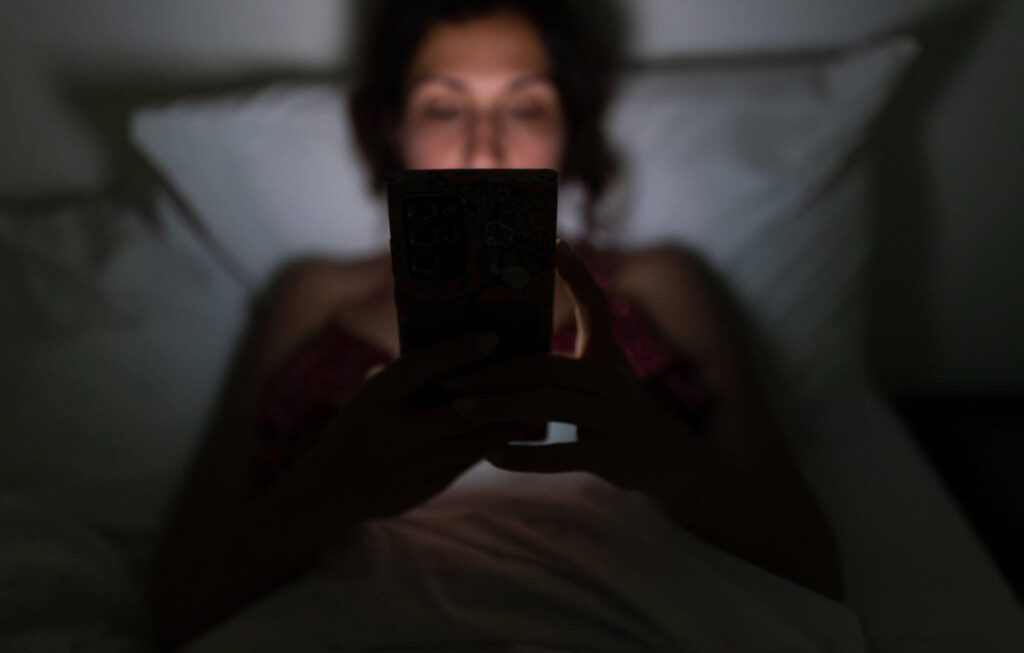
We’ve all been there you tell yourself you’ll just check one more email, watch one more episode, or scroll for just five more minutes. And before you know it, it’s way past your bedtime.
The blue light from screens tricks your brain into thinking it’s still daytime, which suppresses melatonin (the hormone that helps you sleep).
But you don’t have to completely ditch screens at night Instead, try cutting off screen time at least 30 to 60 minutes before bed. Swap your phone for a book, dim the lights, or listen to calming music.
Ref: Click Here
4. Holding in Sneezes
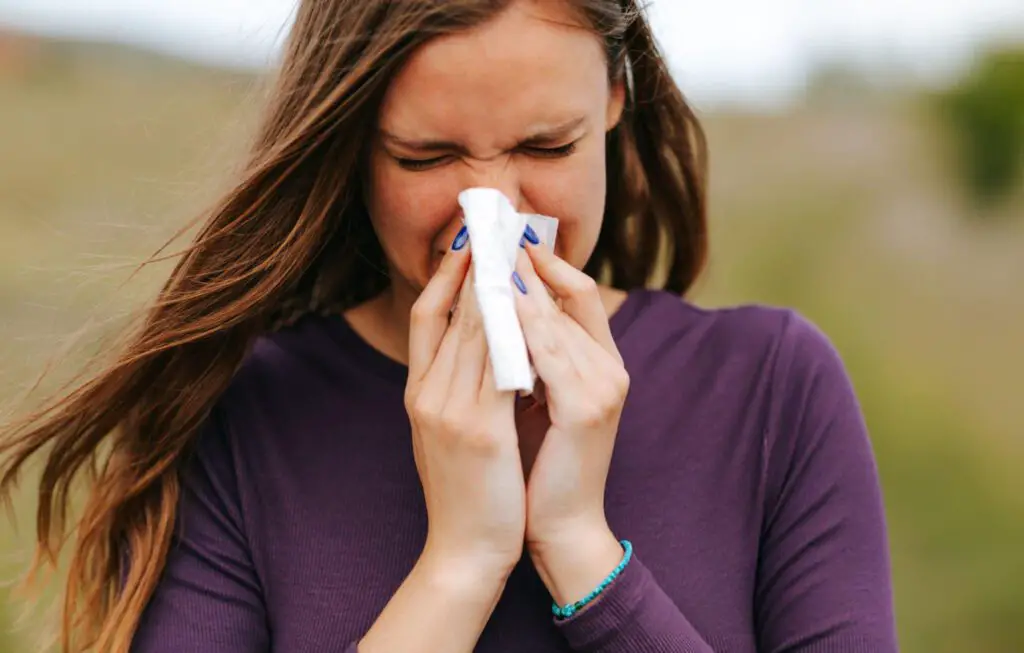
You know that awkward moment when you’re in a meeting, on a crowded bus, or sitting in class, and you feel a sneeze coming on?
Instead of letting it out, you clamp your nose shut and try to stifle it because, well… sneezing in public can feel embarrassing. But holding in a sneeze isn’t just uncomfortable it can actually be dangerous!
Sneezing is your body’s way of clearing out irritants from your nose. When you hold it in, all that built-up pressure has to go somewhere.
In rare cases, this can lead to a ruptured eardrum, damaged blood vessels, or even fractures in the throat.
Ref: Click Here
5. Using Cotton Swabs in Your Ears

Cleaning your ears with a cotton swab feels satisfying right. There’s just something about it that makes you think you’re getting all that wax out. But here’s the truth is those little swabs are doing more harm than good.
Instead of actually cleaning your ears, cotton swabs tend to push earwax deeper into the ear canal, which can lead to blockages, infections, and even damage to your eardrum.
your ears have a natural self-cleaning system! Wax actually helps trap dust and debris, and it usually works its way out on its own. If you feel like you have too much buildup, try wiping the outer part of your ear with a damp cloth or using ear drops to soften the wax.
Ref: Click Here
6. Overconsumption of 'Healthy' Packaged Foods
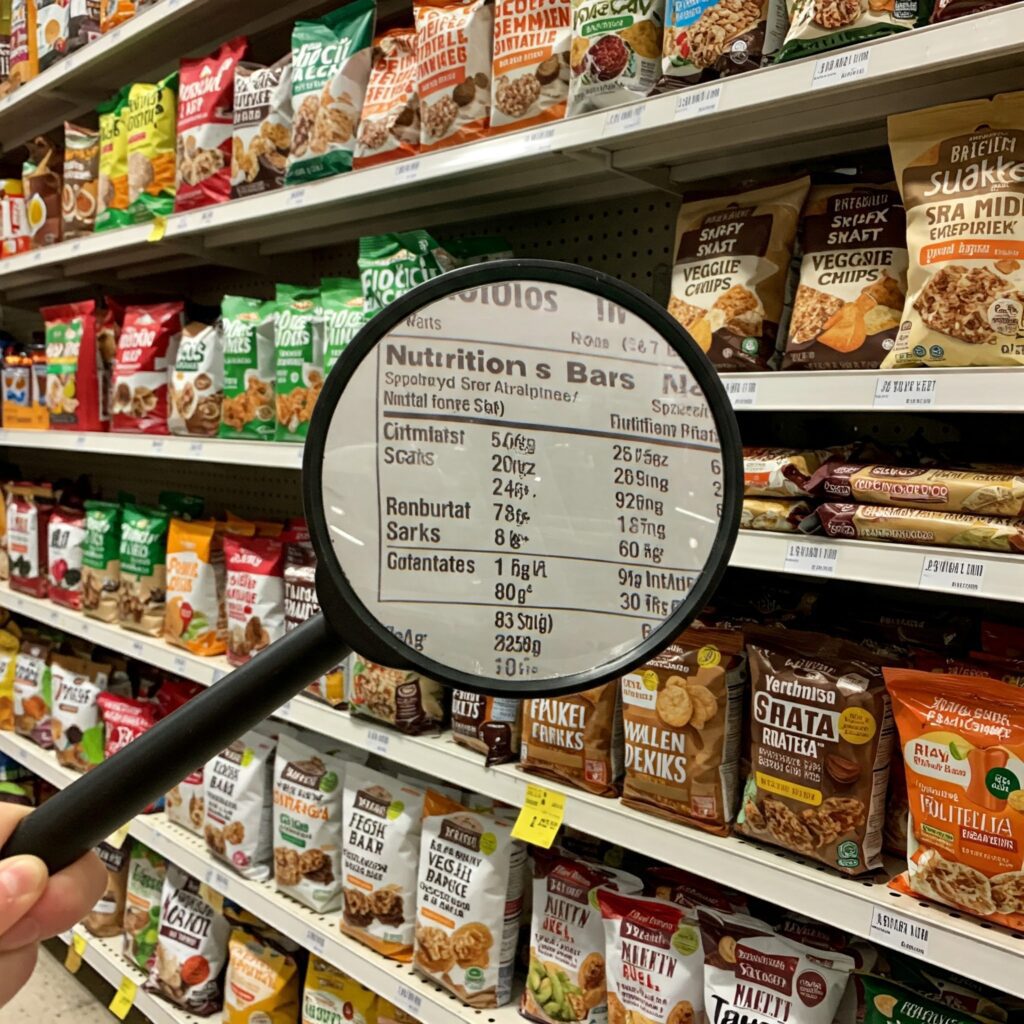
You’re trying to eat healthier, so you grab a protein bar, a bag of veggie chips, or a low-fat yogurt. Sounds like a smart choice, right?
Many packaged foods that seem healthy are actually loaded with hidden sugars, sodium, and artificial additives. That “high-protein” granola bar? It might have as much sugar as a candy bar. That “organic” fruit juice? It’s basically just liquid sugar with a fancy label. Even “low-fat” or “fat-free” options can be tricky
when food companies remove fat, they often replace it with extra sugar or artificial thickeners to keep the flavor.
Now, I’m not saying you have to ditch all packaged foods because let’s be real, sometimes they’re super convenient. The key is to read labels carefully. Look for whole ingredients, minimal added sugar, and healthy fats.
Ref: Click Here
7. Nose Picking
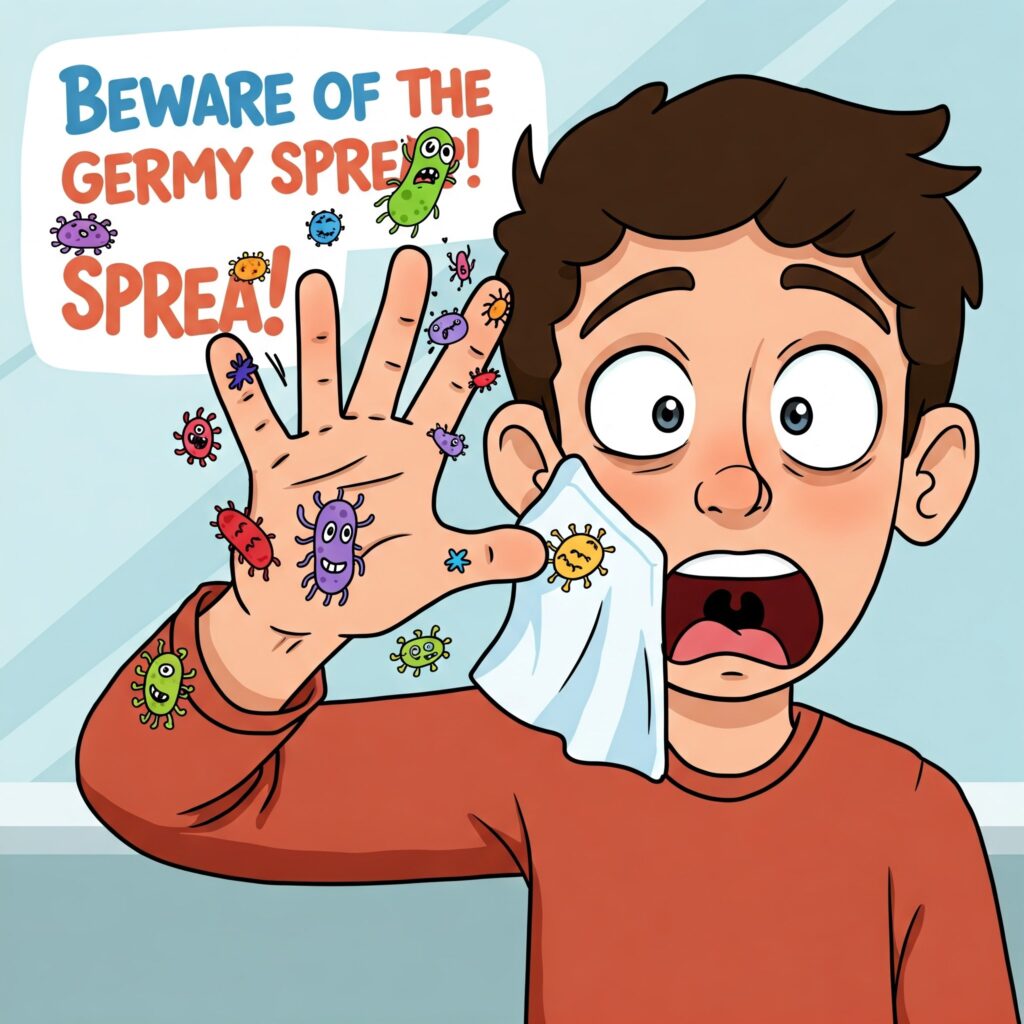
Alright, let’s talk about something we all do but never want to admit picking your nose. It’s one of those little habits that seems harmless (and oddly satisfying), but it might be doing more damage than you think.
Your nose is lined with delicate blood vessels, and constant picking can cause tiny cuts or even nosebleeds. Worse, your fingers carry a ton of germs, and when you go digging around up there, you’re giving bacteria a free pass into your body. Studies even suggest that nose picking could increase your risk of infections, including respiratory illnesses.
So, if you feel like there’s something up there that needs to go, use a tissue instead of your finger.
Ref: Click Here
8. Sneezing into Your Hands

If you feel a sneeze coming, and without thinking, you cup your hands over your nose and mouth. It seems like the polite thing to do, right? Well… not exactly.
Sneezing into your hands might stop the spray, but it also turns your hands into germ central. The next time you touch a doorknob, your phone, or literally anything, you’re spreading those germs everywhere.
And if you forget to wash your hands right away, you could easily pass on bacteria and viruses to yourself and others.
Better sneeze into your elbow! The fabric helps trap germs, and since you’re not touching things with your elbow. Keeping tissues handy is also a great move.
Ref: Click Here
9. Wearing Shoes Indoors

Kicking off your shoes the second you get home might feel like a personal preference, but did you know it could actually be a health choice too? If you’re someone who wears shoes around the house, you might want to rethink that habit.
Your shoes go everywhere and with every step, they pick up dirt, bacteria, and even toxins like pesticides and heavy metals. Studies have found that harmful bacteria, including E. coli, can hitch a ride on your soles and make their way onto your floors.
So next time leave your shoes at the door! Keep a designated spot for them, and if you love the feeling of something on your feet, opt for cozy house slippers or socks instead.
Ref: Click Here
10. Not getting enough Sunlight

Sunlight is the natural source of vitamin D, which plays a role in maintaining various body functions. Spending most of the day indoors or avoiding the sun entirely may lead to lower vitamin D levels.
Taking shorts walks outside, opening curtains to let in natural light, or spending time outdoors when possible can help maintain normal vitamin D levels.
For those who have limited sun exposure, getting vitamin D from foods sources like salmon, eggs, & fortified dairy products can be helpful.
